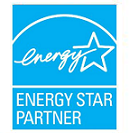


Improving Boiler EfficiencyBoiler Power Plant Efficiency Concerns |
||||||||||||||||||
|
||||||||||||||||||
With the costs of heating fuels continuing to rise, improving boiler efficiency is a prime concern of most facility managers today. When speaking of improving boiler efficiency, several basic terms regarding boiler efficiency need to be well understood.Heat Transfer Efficiency is an inherent property of boiler design, and manufacturers typically indicate the values of efficiency that the specific boiler design provides. It is simply a ratio of how much heat must be put into a system to get a given amount of heat out. It should be noted that the manufacture specifications for heat transfer efficiency for a specific boiler are for a perfectly clean system. Heat transfer efficiency loss can have a very significant impact on overall energy efficiency. ECMI helps our clients keep boilers operating at peek heat transfer efficiency by eliminating lime scale from within their boiler and other facility systems. Heat Loss Ratio is also an inherent property of boiler design. Manufacturers typically indicate the values of heat loss efficiency that the specific boiler design incurs. Improvements can most often be made, in regard to heat loss ratio efficiency, by better insulating the boiler and piping systems. Heat loss ratio is also a value of the building envelope itself, and boilers have to react in relation to how a building looses heat. Improvements in heat loss for a facility should also be looked at when considering methods to improve efficiency. Improvements include better insulating the facility, improved glazing, and better control of air-flow within, and leaving, the building. Operating Efficiency (also called seasonal efficiency) of the boiler relates to the actual and ever-changing conditions found within a facility, how the boiler reacts to the load, and the amount of fuel consumed over a period of time. This value is not generally quantified by boiler manufacturers due to the many variables involved in daily operation, and variables due to the building envelope itself. Since a boiler operates most efficiently when it runs constantly (or at full load), the trend of current technologies is to have several smaller boilers managing supply water needs instead of one large unit. This way each boiler operates closer to optimum efficiency when they are called on for heat. We have found that significant improvements can be achieved in boiler efficiency by better controlling how the boiler operates in response to the changing conditions in a facility. (Also refer to Boiler Efficiency Graphs) ECMI and our Associates help our clients improve boiler operating efficiency in three ways:
By improving Boiler operating efficiency, boiler heat transfer efficiency, and stack drafting, significant energy savings can be achieved. The combination of the systems can easily achieve savings in excess of 40% during a typical heating season. Savastat LC implements "load compensation control" which enables the boiler to function more efficiently in real time based on the current ever-changing weather conditions and facility environment, HydroFLOW keeps the system free of limescale and operating at peak heat exchange efficiency, and the Stack Draft Regulator System optimizes appliance performance by reducing excess stack draft losses. How ECMI Helps Clients Improve Boiler
Power Plant Efficiency
HydroFLOW
Stack Draft Regulator System
Contact us so we can work with your organization to help improve boiler power plant efficiency in your facilities. |
||||||||||||||||||
Copyright © 2003-2009 ECMI

